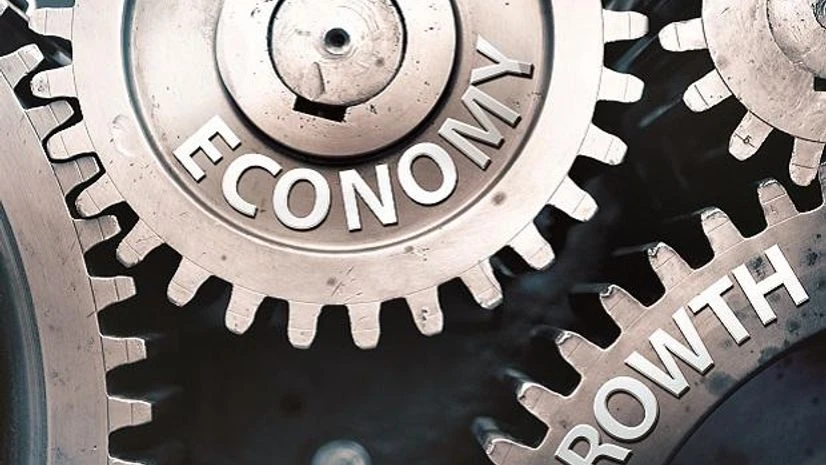Hours after the Union Finance Ministry stated that the Indian economy grew 7.6 per cent during the July-September quarter of the current financial year 2023-24, it said that India's GDP is expected to grow by 6.5 per cent in financial year 2024.
Growth projections for Financial Year 2024 indicate that India will grow by 6.5 per cent. Growth prospects appear bright, though external factors pose a downside risk, the Finance Ministry stated in a press conference on Thursday.
Investment and consumer momentum will underpin solid growth prospects over the upcoming year. Real GDP grew at 7.6 per cent in Quarter 2 of Financial Year 2024 sustaining previous quarter's momentum.
India remains the fastest growing major economy in the July-September 2023 quarter as well.
The growth drivers of India's Quarter 2 GDP growth are strong industry push induced by private consumption and investment, steady performance of the agriculture sector and strong services growth. The urban demand conditions remained resilient.
Also Read
While slowing global demand moderates merchandise exports, strong domestic demand keeps imports high.
The private sector is poised to attain stronger investment growth following the strengthening of corporate and bank balance sheets, supported by the government's Capex push, the Ministry stated.
Expansion of public digital platforms and path-breaking measures such as PM GatiShakti, the National Logistics Policy, and the Production-Linked Incentive schemes will boost manufacturing output.
Uncertainty prevails over merchandise trade, with WTO slashing its projection for world trade growth in 2023 by half to 0.8 per cent from its earlier estimate of 1.7 per cent in April.
Considering the ongoing geopolitical conditions, Brent Crude oil price requires vigilance.
Prolonged geo-political uncertainty and tightened financial conditions also pose a challenge to the growth outlook.
A strong increase in rabi sowing acreage in spite of lower reservoir levels and deficient north-east monsoon rainfall may, however, compensate and improve agricultural production for the year as a whole.
MSMEs supplying in-demand segments are also experiencing a surge in orders, particularly from businesses selling through platforms and large format stores. In turn, bank loans to MSMEs are strong. Nearly half of the credit demand is originating from tier 3 cities.
Rural demand accounts for a third of the revenues of consumer goods companies. Overall rural volume growth is estimated to have risen by 6.4 per cent (versus 10.2 per cent in urban areas).
Investment in the private sector is beginning to pick up as funds intended for capital expenditure (capex) raised by corporates through different channels from banks/ financial institutions (FIs), external commercial borrowings (ECBs), and initial public offerings (IPOs) - during the first half of 2023-24 were 60 per cent higher than during the second half of 2022-23.
(Only the headline and picture of this report may have been reworked by the Business Standard staff; the rest of the content is auto-generated from a syndicated feed.)

)
